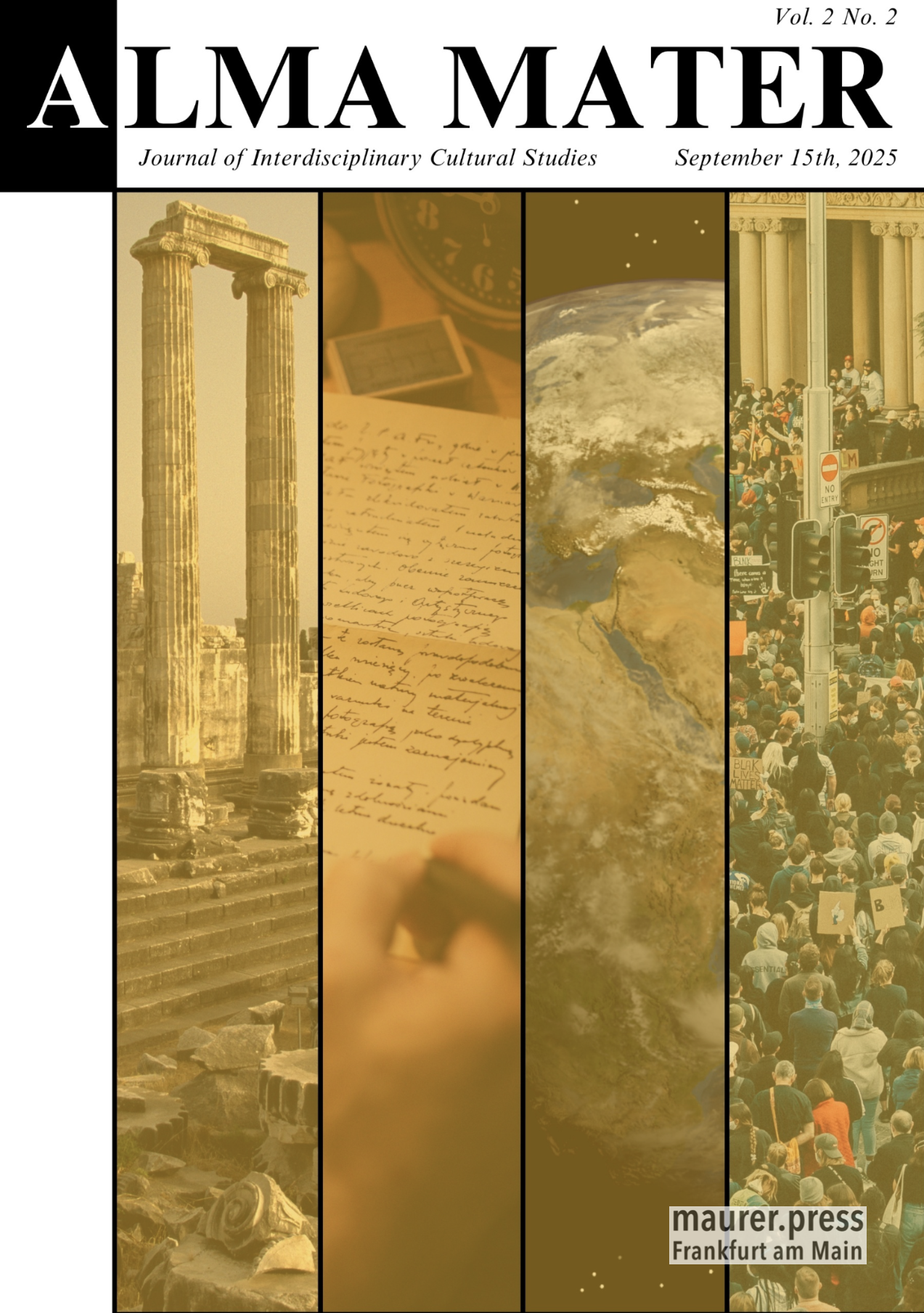| Open Access
Alma Mater – Zeitschrift für interdisziplinäre Kulturforschungen 2025, Bd. 2(2) 305-313
The Poetics of Refusal: Bartleby’s Language and the Violence of Signification
S. 305 - 313 | DOI: https://doi.org/10.29329/almamater.2025.1349.3
Veröffentlichungsdatum: September 07, 2025 | Einzeln/Gesamtansichten: 18/39 | Einzeln/Gesamtdownloads: 20/45
Zusammenfassung
In ”Bartleby, the Scrivener,” Herman Melville presents a character whose passive refusal, encapsulated in the repeated phrase “I would prefer not to,” challenges power, agency, and social norms. This essay examines how Bartleby’s refrain acts as both an assertion of autonomy and a critique of the violence inherent in language. By rejecting his employer’s commands, Bartleby disrupts the rational, efficiency-driven logic of the workplace, exposing the violence embedded in linguistic norms. Slavoj Žižek’s concept of language as inherently violent—through its imposition of norms and standards— illuminates how Bartleby’s refusal goes beyond protest, creating a space of resistance that defies interpretation and subverts power dynamics. Bartleby’s language, neither a clear denial nor an expression of desire, becomes a radical negation that questions the very nature of meaning. Ultimately, Bartleby’s refusal does not propose a new order but disrupts the structures of meaning and authority, forcing us to confront the limits of language itself.
Schlüsselwörter: Bartleby, Herman Melville, Slavoj Žižek, violence, language, signification
APA 7. Auflage
Tseng, C.M. (2025). The Poetics of Refusal: Bartleby’s Language and the Violence of Signification. Alma Mater – Zeitschrift für interdisziplinäre Kulturforschungen, 2(2), 305-313. https://doi.org/10.29329/almamater.2025.1349.3
Harvard
Tseng, C. (2025). The Poetics of Refusal: Bartleby’s Language and the Violence of Signification. Alma Mater – Zeitschrift für interdisziplinäre Kulturforschungen, 2(2), pp. 305-313.
Chicago 16. Auflage
Tseng, Chia-Chieh Mavis (2025). "The Poetics of Refusal: Bartleby’s Language and the Violence of Signification". Alma Mater – Zeitschrift für interdisziplinäre Kulturforschungen 2 (2):305-313. https://doi.org/10.29329/almamater.2025.1349.3
